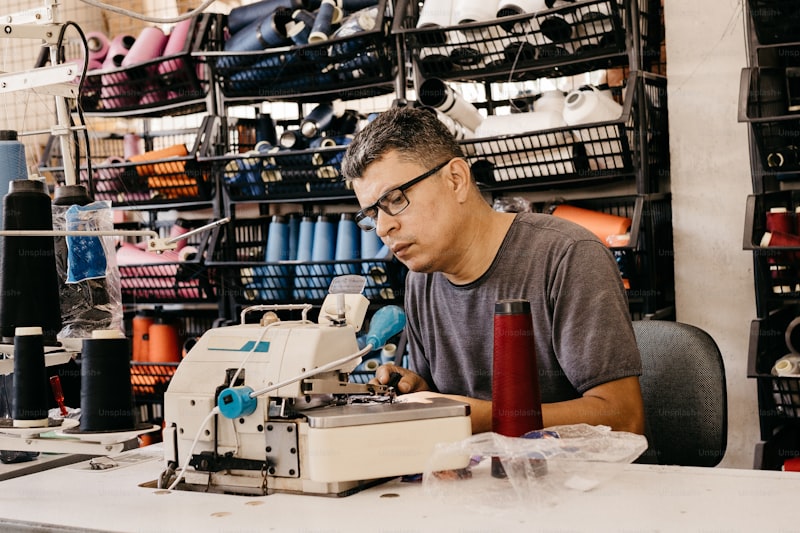Comparing Custom and Pre-Made: Which One is Right for You?
In today’s dynamic market, the choice between custom and pre-made products presents a significant decision that can influence both personal satisfaction and financial outcomes. Whether you are looking for items in fashion, furniture, software solutions, or any other industry, understanding the differences between these two options is crucial. This article dives deep into the advantages and disadvantages of custom versus pre-made products, helping you make an informed decision.
What Are Custom and Pre-Made Products?
Before we delve into the specifics of comparing custom and pre-made options, let’s clarify what these terms entail.
- Custom products are created specifically according to a customer’s specifications. This means that every aspect, from size, design, material, and functionality, can be tailored to the buyer’s desires.
- Pre-made products are mass-produced and available off-the-shelf. These items are designed for a broader target market, and while they may offer a variety of choices, they do not provide the same level of personalization.
Advantages of Custom Products
Custom products come with a range of benefits:
- Personalization: The most obvious advantage is the ability to tailor the product to your specific needs and preferences. This personalized touch can enhance your satisfaction.
- Quality Control: Custom products often involve higher quality materials and craftsmanship because they are being created for a specific client or project, reducing the chances of low-quality items.
- Uniqueness: Owning a custom product allows you to stand out from the crowd. Customized items can reflect your personal style and project a distinct image.
- Long-term Investment: While custom products may have a higher upfront cost, they often last longer and perform better, making them a smarter long-term investment.
Disadvantages of Custom Products
Despite their many advantages, there are some drawbacks to consider:
- Higher Costs: Custom solutions typically come with a premium price due to the labor and materials required for tailored production.
- Longer Lead Times: The creation process for custom products can take considerable time, which may not suit customers who need items quickly.
- Risk of Over-customization: In some cases, too much personalization can lead to an item that, while unique, may not be practical or useful.
Advantages of Pre-Made Products
On the flip side, pre-made products have their own set of benefits:
- Affordability: Pre-made items usually come at a lower price point, making them an attractive option for budget-conscious consumers.
- Immediate Availability: One of the biggest advantages of pre-made products is that they are readily available for immediate purchase, eliminating the wait time associated with custom orders.
- Wide Selection: Pre-made products are often available in various styles, colors, and features, providing a broad range of options.
Disadvantages of Pre-Made Products
However, it is essential to recognize the limitations:
- Lack of Personalization: Pre-made items often do not reflect individual tastes, which can leave some consumers feeling disconnected from their purchases.
- Variable Quality: With mass production, quality can vary significantly, leading to potential dissatisfaction with the product's durability or performance.
- Over-Saturation: Pre-made products are widely available, which may result in many people owning similar items, reducing their uniqueness.
Key Factors to Consider When Choosing Between Custom and Pre-Made Products
Here are some essential aspects to keep in mind while making your decision:
| Factors | Custom Products | Pre-Made Products |
| Price | Higher cost due to personalization | More affordable, mass-produced |
| Lead Time | Longer due to crafting | Immediate availability |
| Quality | Usually higher quality craftsmanship | Variable quality based on production |
| Personalization | Tailored to the buyer | Limited choices |
| Unique Factor | Unique to the individual | Commonly owned items |
Real-World Applications: When to Choose Custom or Pre-Made
Understanding your needs can help determine which option is best suited for you:
- Fashion: If you’re looking for a unique outfit that reflects your personality, consider custom tailoring. However, for everyday wear, pre-made clothing may suffice.
- Furniture: Custom-made furniture can enhance your living space, providing specific dimensions that fit perfectly in your home. On the other hand, pre-made furniture is often more practical for quick moves or temporary setups.
- Software Solutions: Businesses might need bespoke software that meets their specific operational needs. For general tasks, pre-made software solutions could be more efficient and cost-effective.
Conclusion: Making the Right Choice for You
In conclusion, the decision to choose between custom and pre-made products depends on various factors including budget, urgency, a desire for uniqueness, and the specific needs of the consumer. For those seeking a unique, personalized product that meets exact standards, custom solutions are unmatched. Conversely, for quick purchases that cater to immediate needs, pre-made products present a practical alternative.
As you navigate this decision, take the time to weigh the pros and cons of both options. Remember to consider your lifestyle, preferences, and the purpose of your purchase. Ultimately, whether you opt for a unique custom creation or a ready-to-go pre-made item, the goal is to find what best meets your needs and enhances your life.
